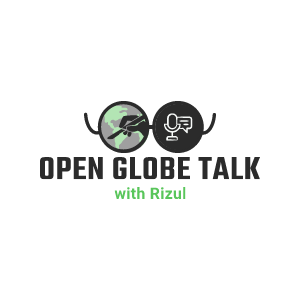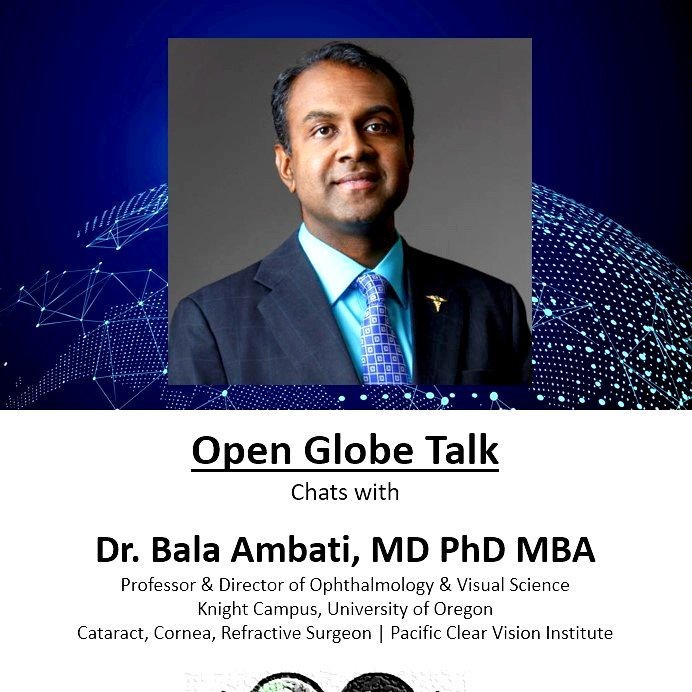May 8, 2022
Episode 22: Dr. Bala Ambati, MD PhD MBA
A discussion on
“Early steps in global ophthalmology: Expectations in Cornea”
Dr. Bala Ambati, MD PhD MBA
In this episode, we have the amazing opportunity to chat with Dr. Bala Ambati, who is a remarkable surgeon at the Pacific ClearVision Institute and also a research professor at the Knight Campus of the University of Oregon.
He attended New York University for undergraduate and completed medical school at Mount Sinai School of Medicine. He trained at the prestigious Mass Eye and Ear for ophthalmology residency with a subsequent fellowship in cornea and refractive surgery from Duke University. He has also earned his PhD from the Medical College of Georgia and a MBA at the University of Utah.
Having been named as the number 1 eye surgeon in the top ‘40 under 40’ global competition and making the top 100 power list of ophthalmology by The Ophthalmologist magazine, Dr. Ambati is a globally renowned figure who is also an incredible humanitarian. Having worked with ORBIS, Sightlife, Sight for the Sightless, Help Mercy International, and many other service organizations, it is a testament to the contributions he has made to the global ophthalmology community. Today we get to learn about his journey and how his early career has impacted him in the path he leads today.
Key discussion points:
Why did you choose Ophthalmology?
Why specifically cornea as your specialty choice?
Starting global ophthalmology early in career
2006 Orbis program: Ghana
Mentor: Dr. Roberto Pineda
Things to keep in mind
Avoid complications and manage complications if they do occur
Recognize that when you go overseas, you are not at your best
Need to have patience
Working in limited-resource settings
Improvise
Know yourself
Do you have the stamina, patience, and expertise, time
When are you ready to train and work as a global ophthalmologist?
Number of cases: every residency/fellowship is different
Indication for readiness in global ophthalmology:
~500 cataracts, low vitreous loss rate, low lens drop rate, and you feel fairly comfortable handling complications
Global ophthalmology fellowship thoughts
What are you trying to achieve?
Skills transfer, knowledge exchange
Staying connected with ophthalmologists you work with abroad
Convenience of virtual education platform (Cybersight)
Reach a lot more people = broader impact
Unique cases in cornea abroad
Cornea tissue delivery for transplantation
Aspect of selecting patients for transplant
Trauma
PBK
Keratoconus
Parasitic diseases
Founding iVeena: Eye drug delivery company
Main focus: Eye drop for keratoconus
Technological advances in global ophthalmology
Memorable global ophthalmology experiences
8 corneal transplants in one day in Jakarta, Indonesia
Power going out in Zambia
Calcutta, India
Episode-based Resources:


